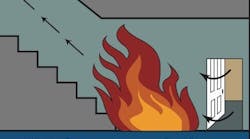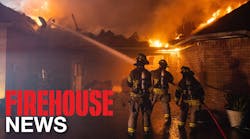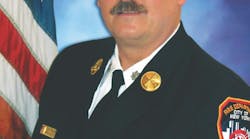State traffic laws give emergency vehicles special privileges. But they also impose specific obligations upon emergency vehicle operators, including clear statements about when a siren must be used, and when it cannot be used.
Most state traffic laws follow the Uniform Vehicle Code (UVC), published by the National Commission on Traffic Laws and Ordinances. The UVC establishes the generally accepted principle of traffic law that an emergency vehicle may disregard most traffic regulations when responding to an emergency, provided that it is operating both its emergency lights and siren. An emergency vehicle may proceed past a red stop signal or stop sign, exceed speed limits, and disregard one-way street and turn restrictions. But, in granting these special privileges to emergency vehicles, the code states, "The exemptions herein granted to an authorized emergency vehicle shall apply only when such vehicle is making use of an audible signal … and visual signals."
Further, the model law requires that the siren is to be used only when responding to an emergency, or in immediate pursuit of a criminal. However, this section contains an additional critical provision: "… the driver of the vehicle shall sound the siren when reasonably necessary to warn pedestrians and other drivers of the approach of the vehicle." In other words, it is incumbent upon the emergency vehicle operator to make enough noise to warn others of his or her approach. The New Jersey drivers that I saw were not doing this.
There is a final element of the model law that overrides all the other provisions related to emergency vehicle operations. And, it is so important that it is repeated twice. The special provisions granted to emergency vehicles, "shall not relieve the driver of an authorized emergency vehicle from the duty to drive with due regard for the safety of all persons using the highway." Further, they shall not "protect the driver from the consequences of the driver's reckless disregard for the safety of others."
Every driver has a duty to drive with due regard for the safety of others who are using the highway. This is the basic principle upon which our civil traffic liability system is grounded. And this rule applies to emergency vehicle operators, regardless of any other particular privileges that they might have.
While New Jersey law incorporates some of the UVC language, it takes a different approach to regulating emergency vehicle operations. It does not grant specific privileges or impose specific obligations upon emergency vehicle operators. Instead of a requirement that emergency vehicle drivers use their sirens, New Jersey law merely limits siren use to emergency responses.
New Jersey places responsibility upon drivers of other vehicles by requiring them to yield the right of way to an emergency vehicle. But this responsibility arises only when an audible signal is sounded: "The driver of a vehicle upon a highway shall yield the right of way to an authorized emergency vehicle when it is operated in response to an emergency call … and when an audible siren is sounded from the emergency vehicle."
Further, when approached by an "emergency vehicle giving audible signal," drivers must pull to the rightside curb, clear the intersection and stop until the emergency vehicle has passed.
Many states require siren use by emergency vehicle operators in order to qualify for special traffic privileges. New Jersey is more indirect because it imposes requirements upon other drivers when a siren is sounding. However, New Jersey does follow the UVC in applying the critical requirement that emergency vehicle operators must operate with due regard for the safety of all persons.
I don't know whether New Jersey's different approach to the law leads to limited siren usage such as I saw throughout the state. It might merely be local practice in the town that I was visiting. However, regardless of the legal language in New Jersey, or any other state, all emergency vehicle operators must comply with the overriding duty to drive with "due regard" for the safety of others.
Siren usage is but one component of safe, effective emergency vehicle operation. It is required in order to assert the legal privileges of emergency operations. But, more important, it is a critical element in every emergency vehicle operator's highest obligation, protecting the safety of everyone on the road.
Steve Blackistone, a Firehouse® contributing editor, is an attorney and a member of the Bethesda-Chevy Chase Rescue Squad in Montgomery County, MD.




